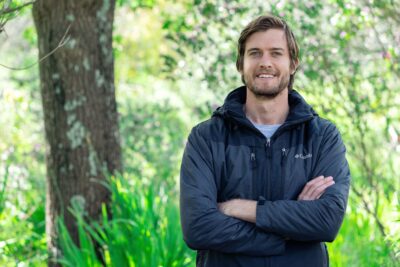Ensuring just transitions in small-scale fisheries: learnings from across the globe
Written by Willem Malherbe and edited by Ela Vermette-Furst Photos by Derek Armitage

This blog post is part of a series reflecting on a selection of sessions and keynotes that were presented at the PECS-III Conference, Montreal Canada, 12-15 August 2024
Day two of the conference treated participants to a symposium on transitioning towards resilient and just small-scale fisheries. Derek Armitage opened the session by stating that the objective of the symposium was to identify and interrogate potential pathways and transitions towards socially just and ecologically resilient small-scale fisheries. To guide the discussion towards this objective, Derek proposed questions regarding the governance factors that provide barriers and enablers to transitions, the role of processes such as innovation, the specific scale at which processes are applied to achieve transitions, and the justice implications that transitions may hold.
Micaela Trimble spoke about the need for small-scale fisheries transitions in Uruguay to overcome persistent problems such as powerful middlemen and the destructive practices of large-scale fisheries. She highlighted the need for transformative research to create spaces where innovation, learning, social relationships and inspiration can take root and promote small-scale fisheries transitions. Micaela encouraged audience members to check out The Pescando Transformaciones to learn more about an innovative initiative driving transitions in small-scale fisheries in Uruguay.
Deborah Prado brought the conversation to a larger regional context by talking about blue injustices and transformative changes in small-scale fisheries communities across Latin America. According to Deborah, nations within Latin America have prioritised enhancing the viability of small-scale fisheries, where many inhabitants depend on the industry for food security. Deborah’s research highlights the importance of social mobilisation, such as the formation of grassroot organisations, to enhance the viability of small-scale fisheries. Such mobilisations contribute to the agency of participants, learning and the empowerment of actors who are otherwise prevented from participating in decision-making processes.
Melissa Marschke’s section brought us to the other side of the globe by talking about how changes in fish biomass is impacting the lives of Cambodia’s female fish processors. Melissa noted a number of inequities that are persistent in the sector, but her talk focused primarily on the vulnerability of women in the fish processing sector due to the continued decline in the biomass of wild fish populations. While farmed fish provides a potential respite to this problem, the low amount of money that women receive for their labour remains unfair compared to compensation in other roles. Governance structures in these fisheries therefore need to better consider how to support marginalised women at the village level to improve the viability of dried fish economies in Cambodia.

Next up, Prateep Nayak spoke about the conundrum of transitioning between vulnerability and viability in the small-scale fisheries of Bay of Bengal. Prateep highlighted perspectives of transitioning between vulnerable scenarios, including aspects of low resiliency, high exposure to shocks, food insecurity and discrimination of women, towards a viable scenario which is characterised by sustainability, wellbeing, equal opportunities and community cohesion. To overcome what he describes as ‘orders of injustice’, Prateep proposes an (in)justice framework to facilitate the transition of vulnerability to viability.
The final speaker was Ella-Kari Muhl, who presented a global perspective on transitions in small-scale fisheries by synthesising learnings from sites in Africa and Asia. With the primary research objective of identifying pathways to enhance viability of small-scale fisheries, Ella-Kari conceptualised the transition between vulnerability to viability as one in which processes of political ecology, multi-level governance, social-ecological resilience and sustainable livelihoods are considered and navigated. Her work shows the need for governance processes to span levels of actor participation, for instance by including those that are community-based alongside structures that represent top-down processes. She highlights that this multi-level perspective of governance can only be successful if different types and sources of knowledge and values regarding fishery systems are incorporated into these processes.
A key theme that emerged across all speakers are the context specific nature of resilience and justice in small-scale fisheries. Any form of transition requires that equity effects are made explicit through consideration of historical injustices, continued power disparities, and the cross-scale interactions that impact on small-scale fishers. Importantly, it requires that the voices of small-scale fishers and their communities are amplified so it may reach and influence different decision-making processes where their interests are left unrepresented, and thereby ensure that the small-scale fisheries transitions reflect the needs and conviction of the many who depend on them.


